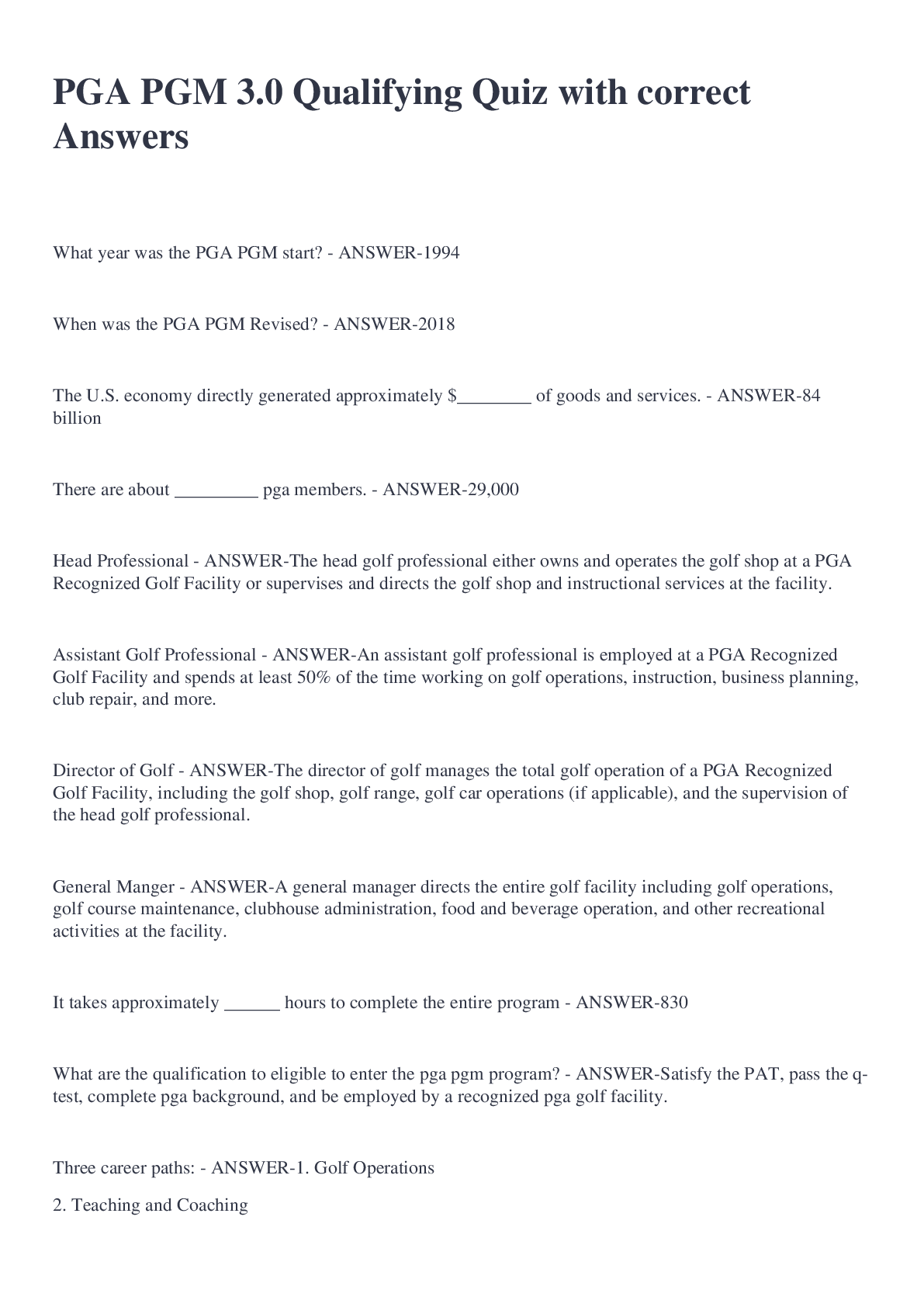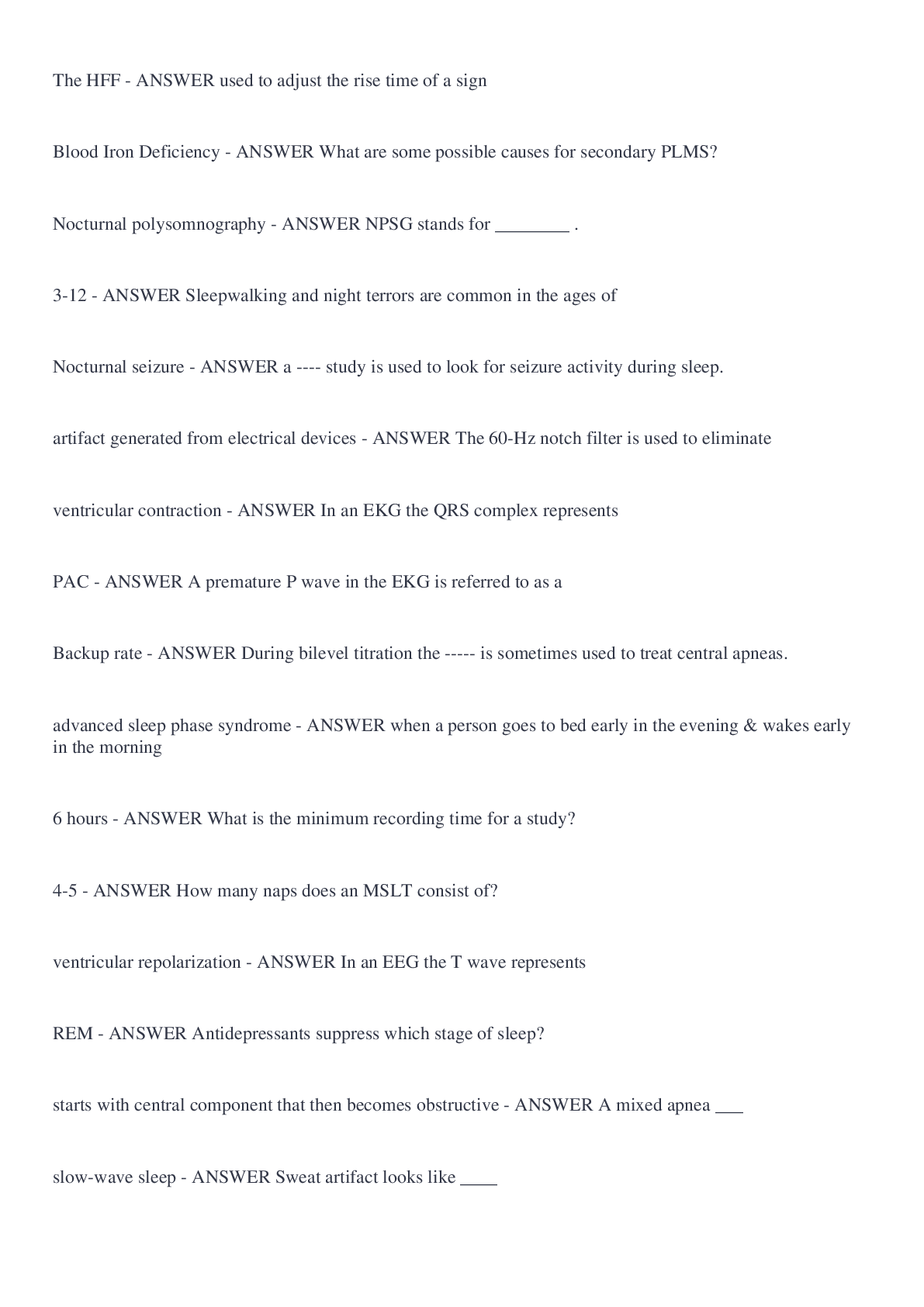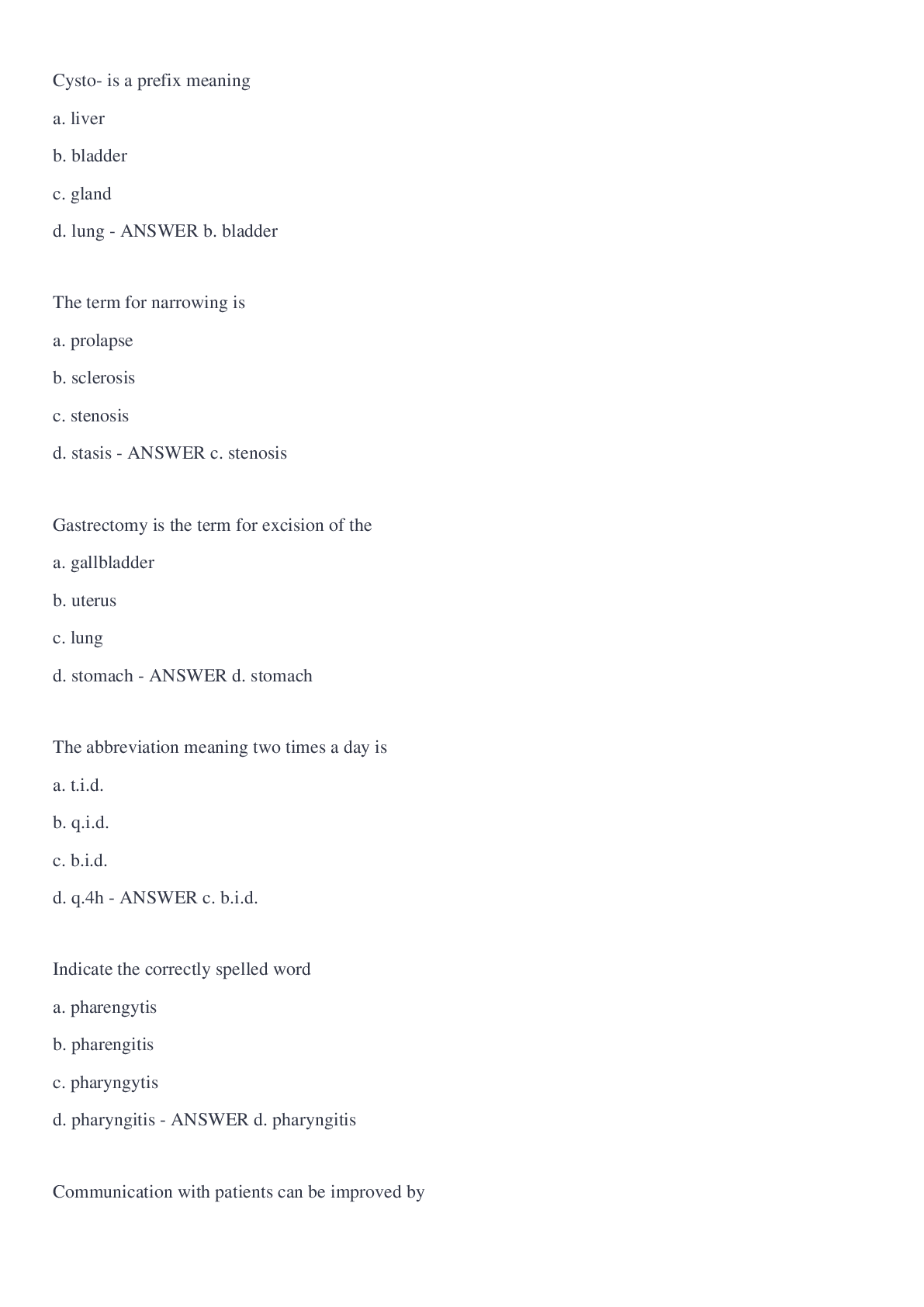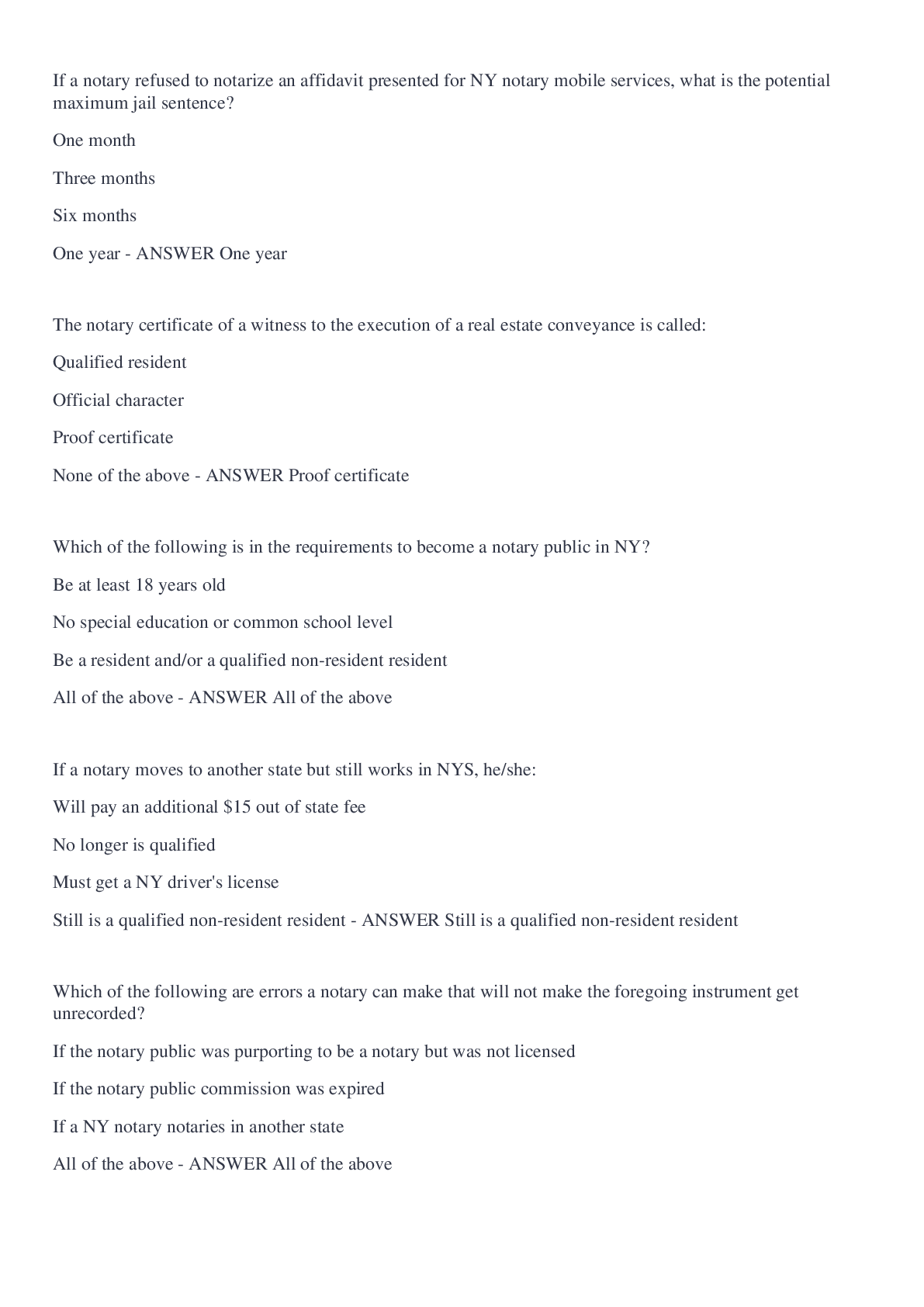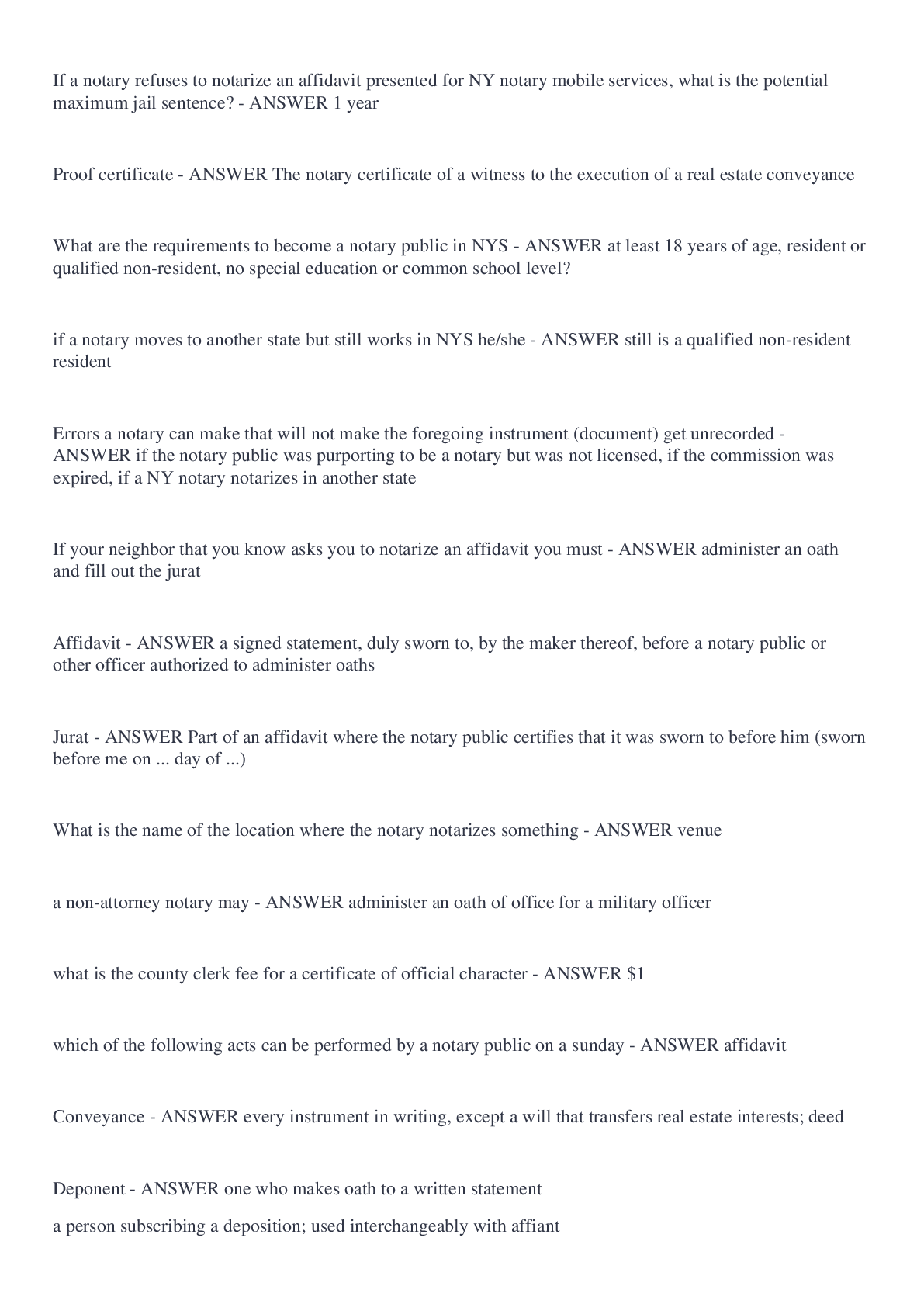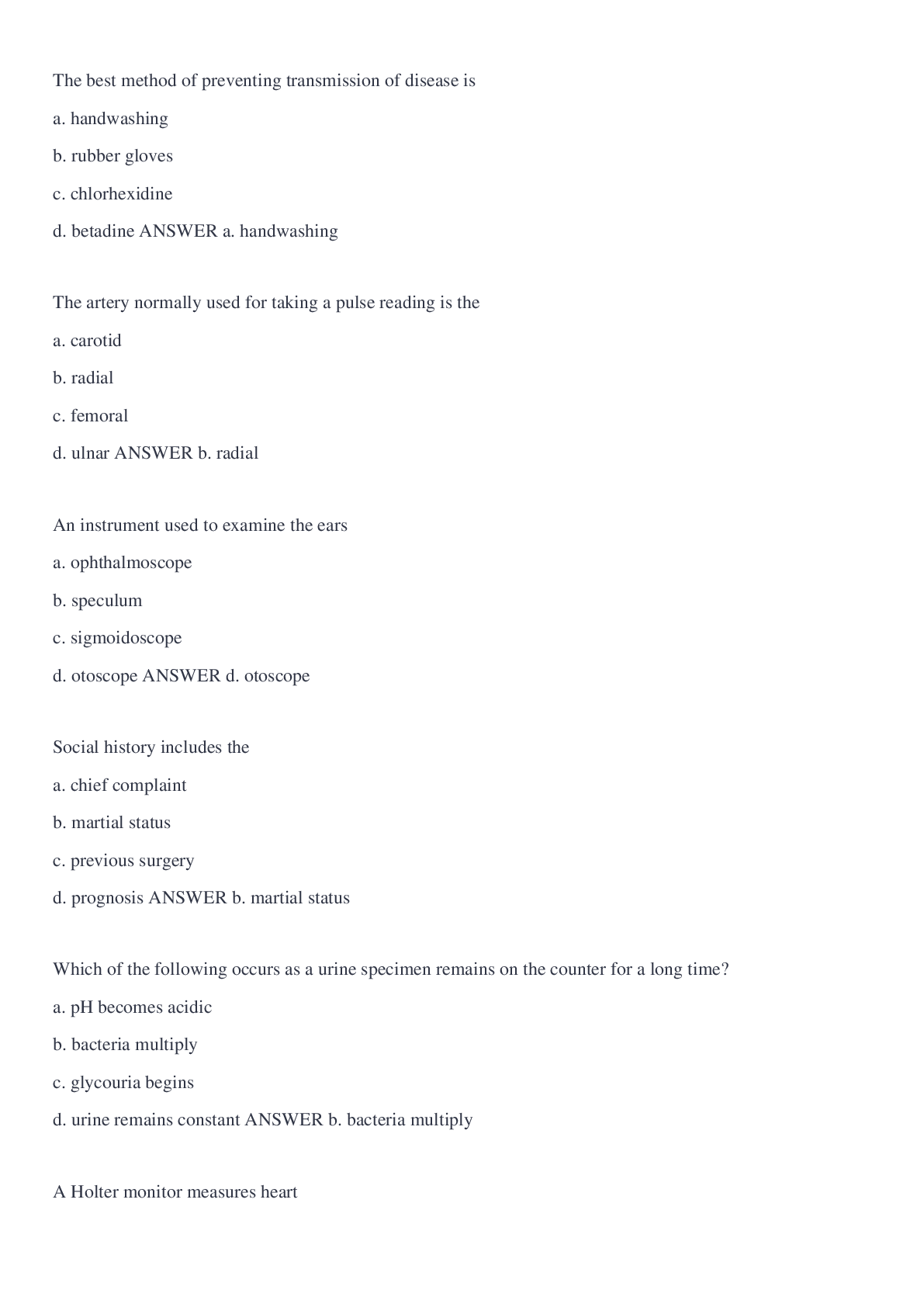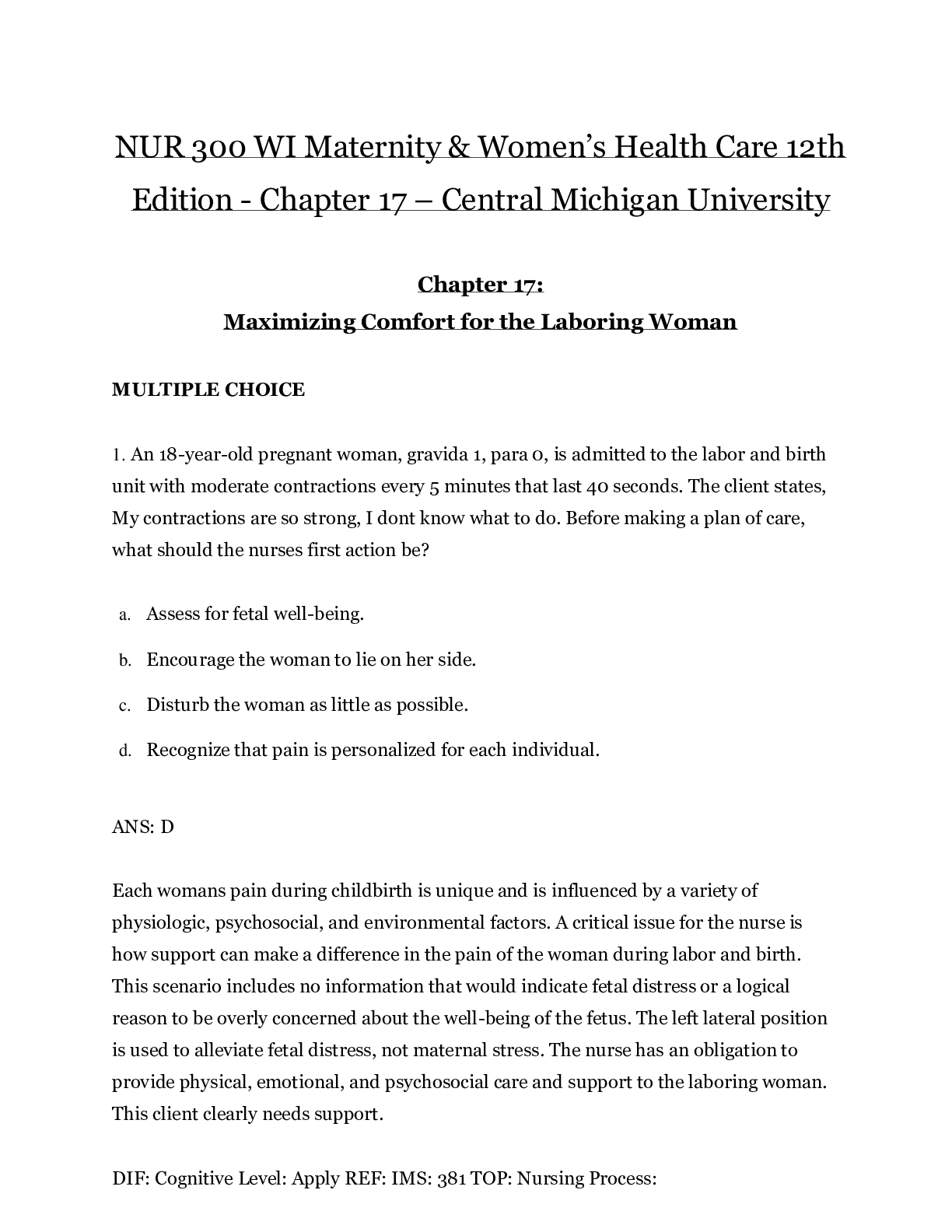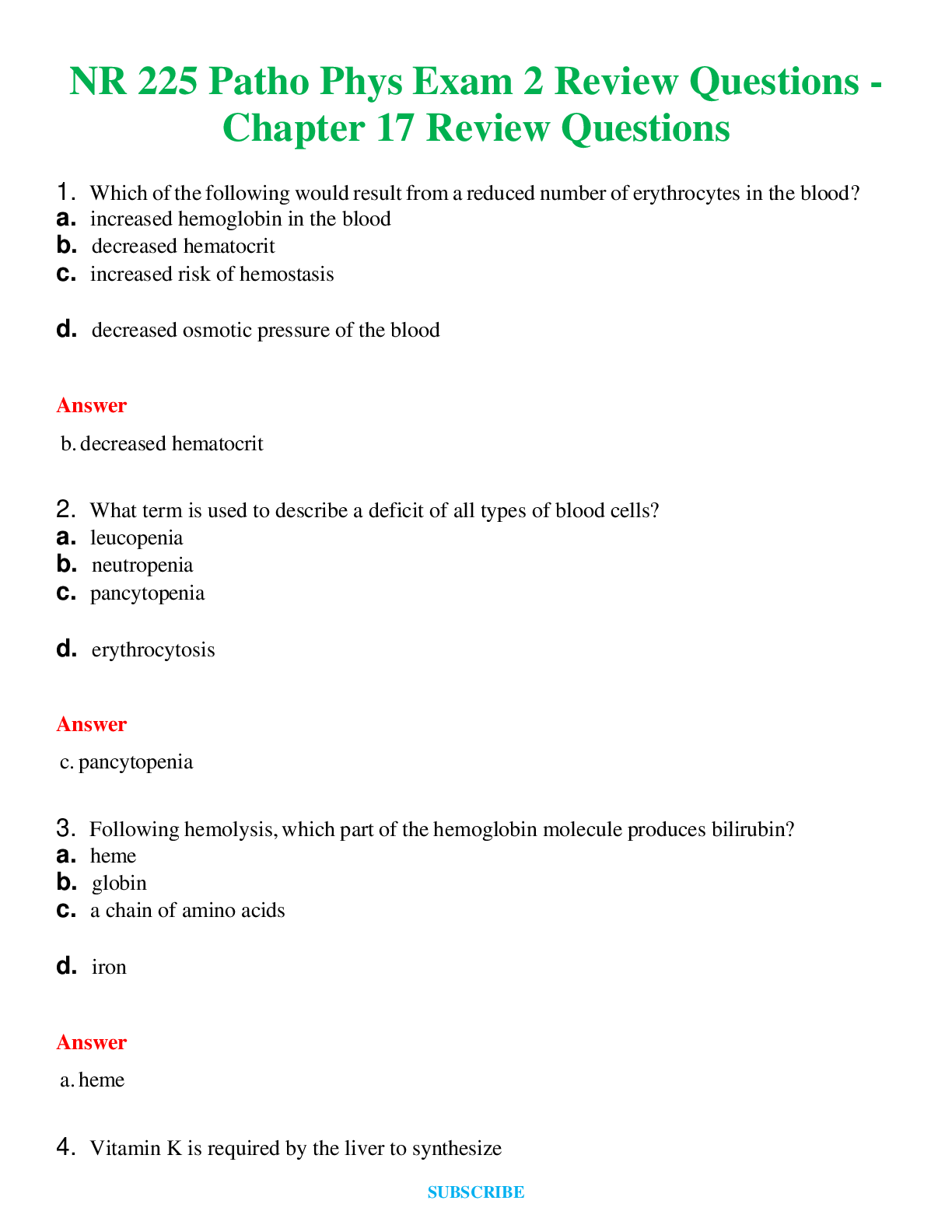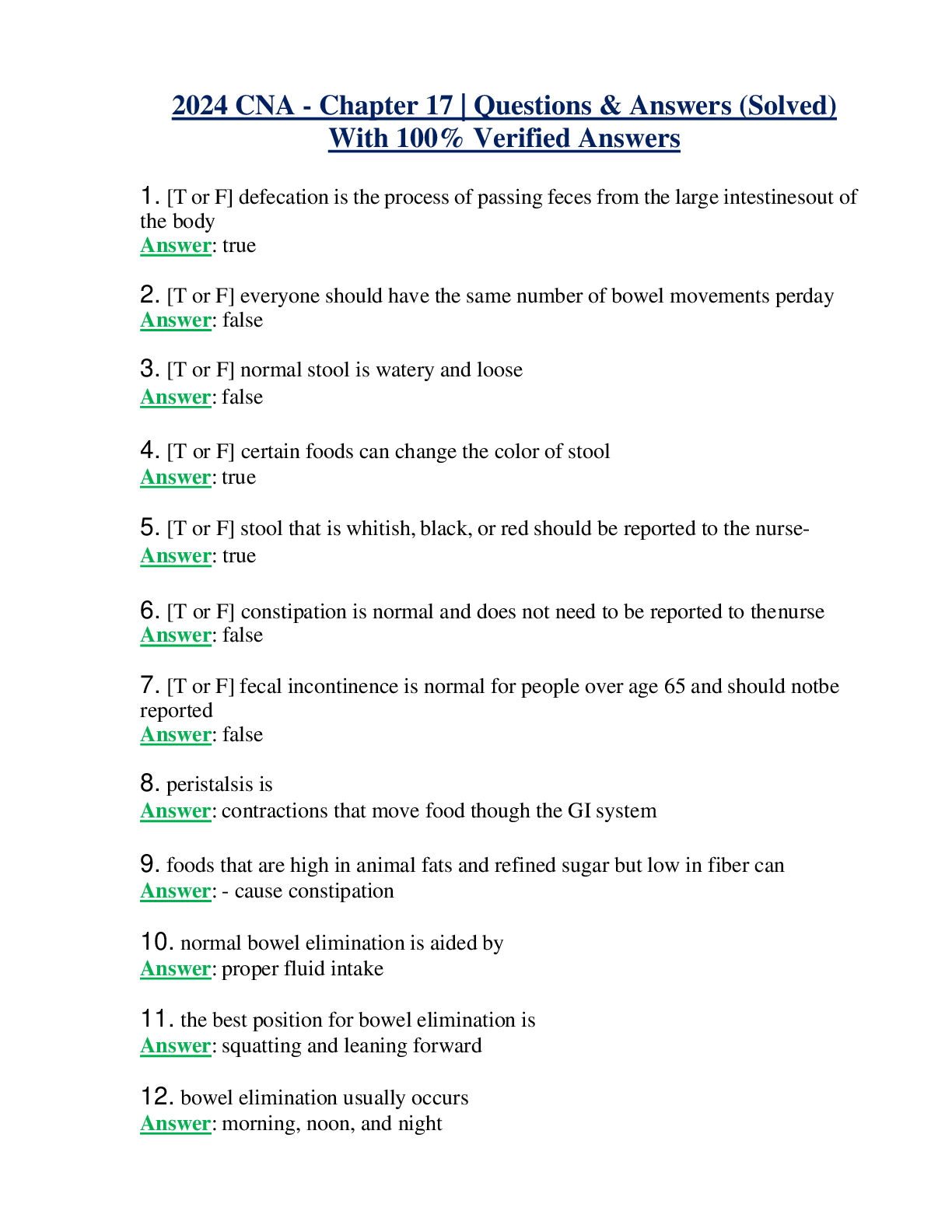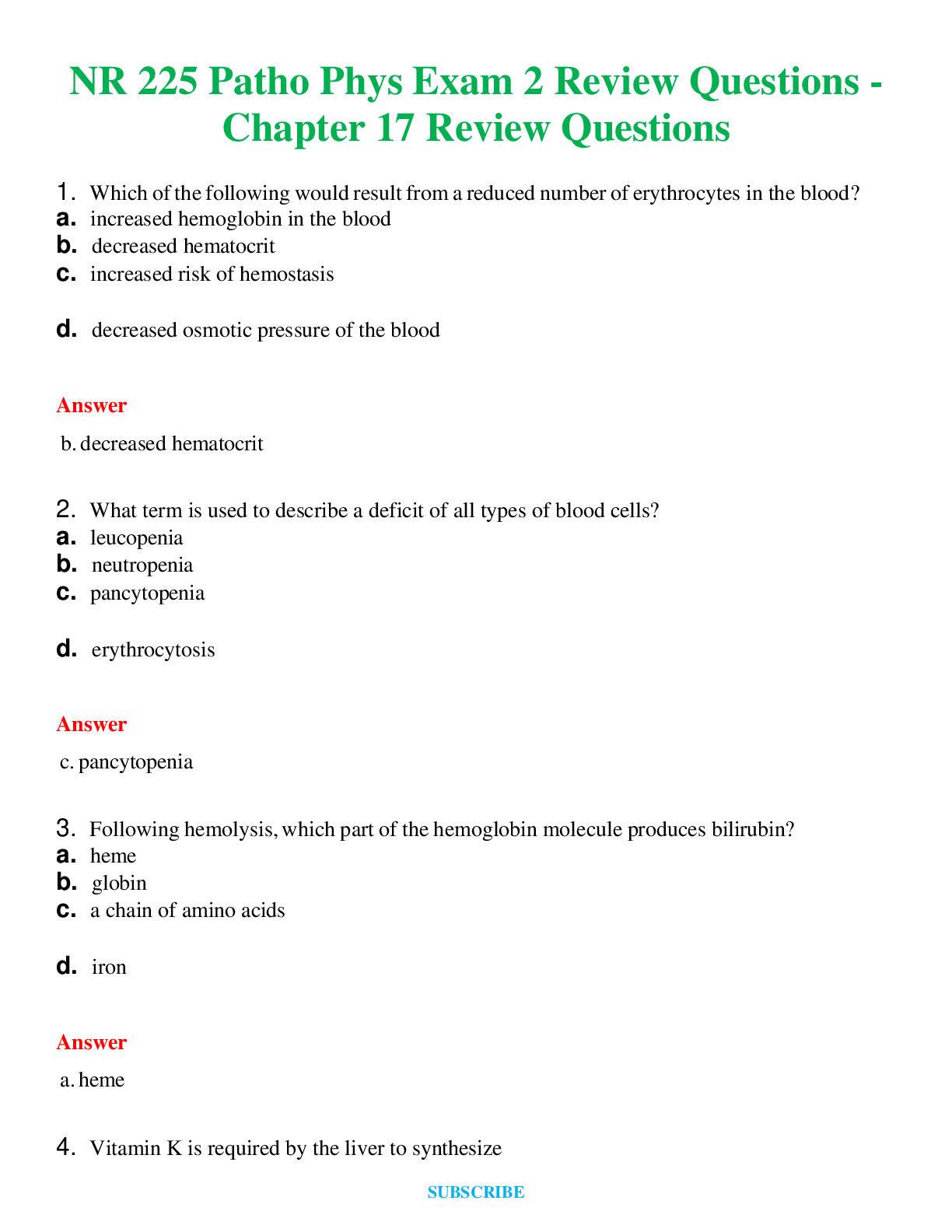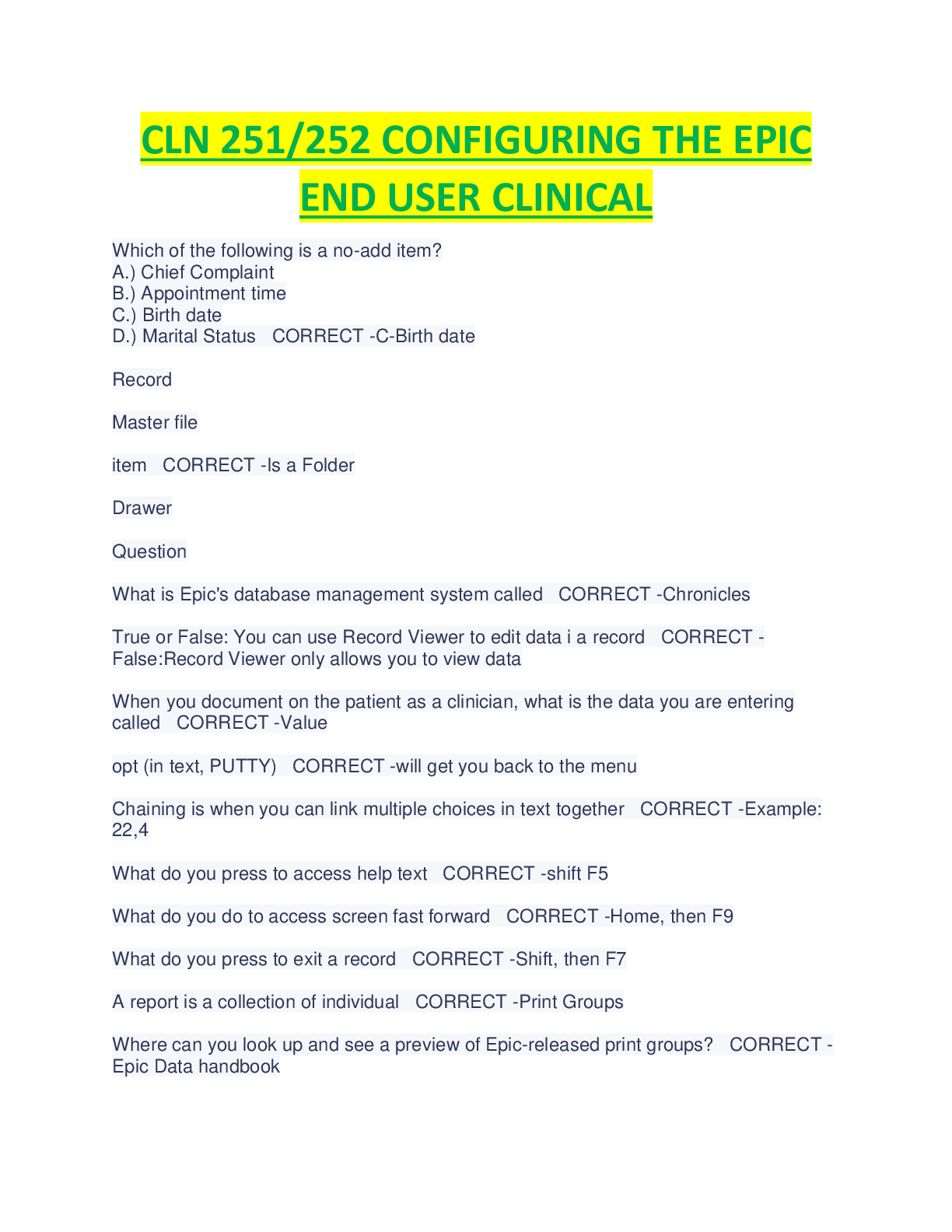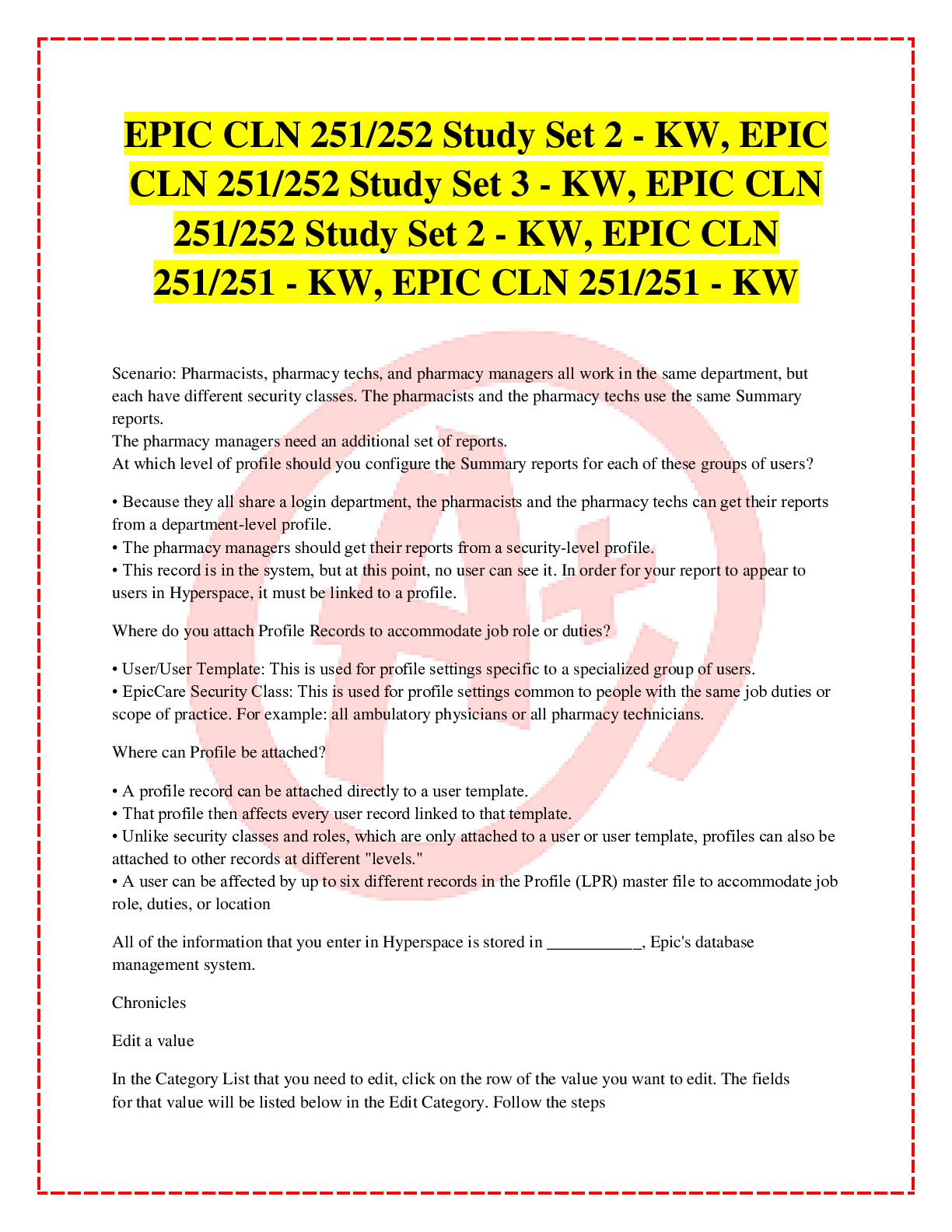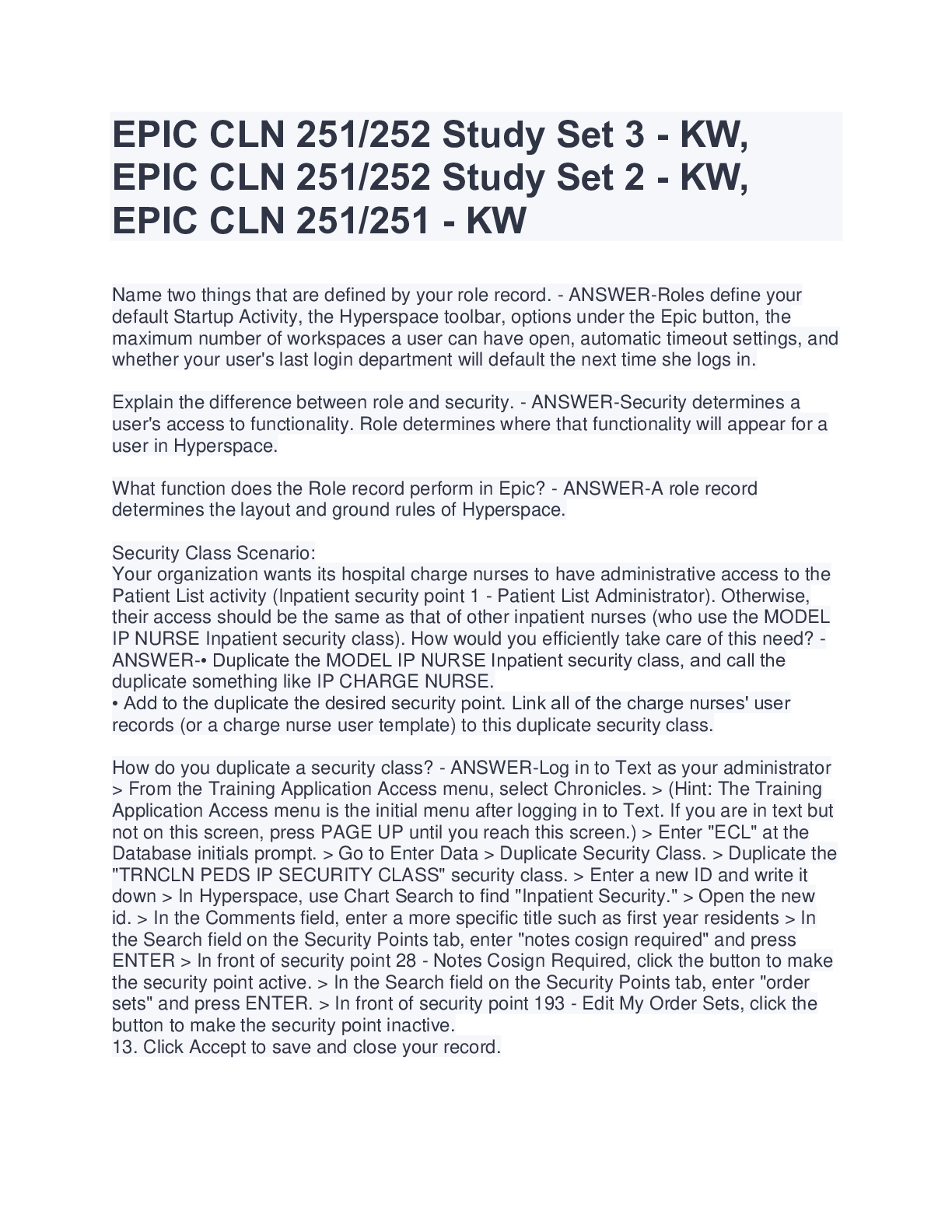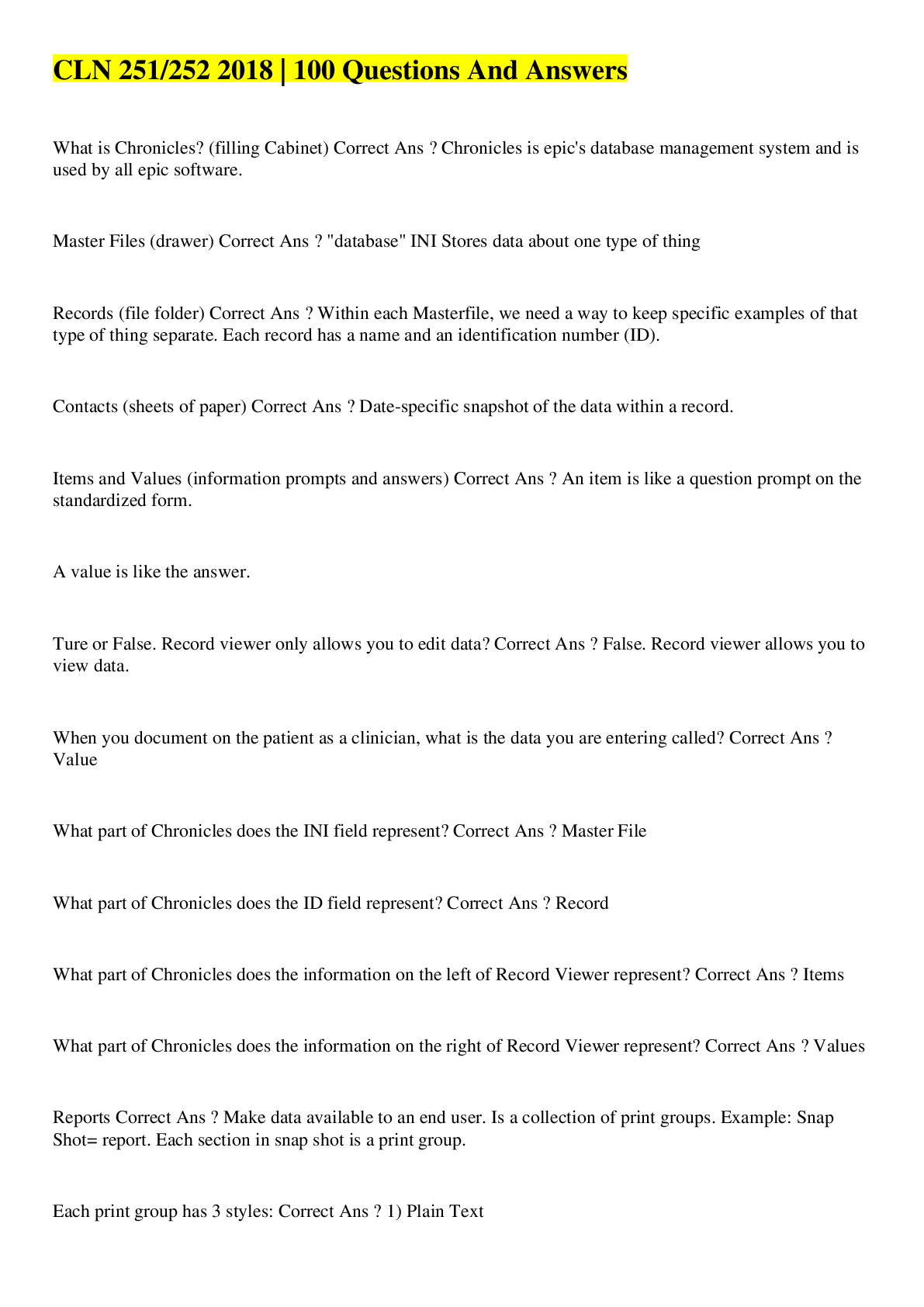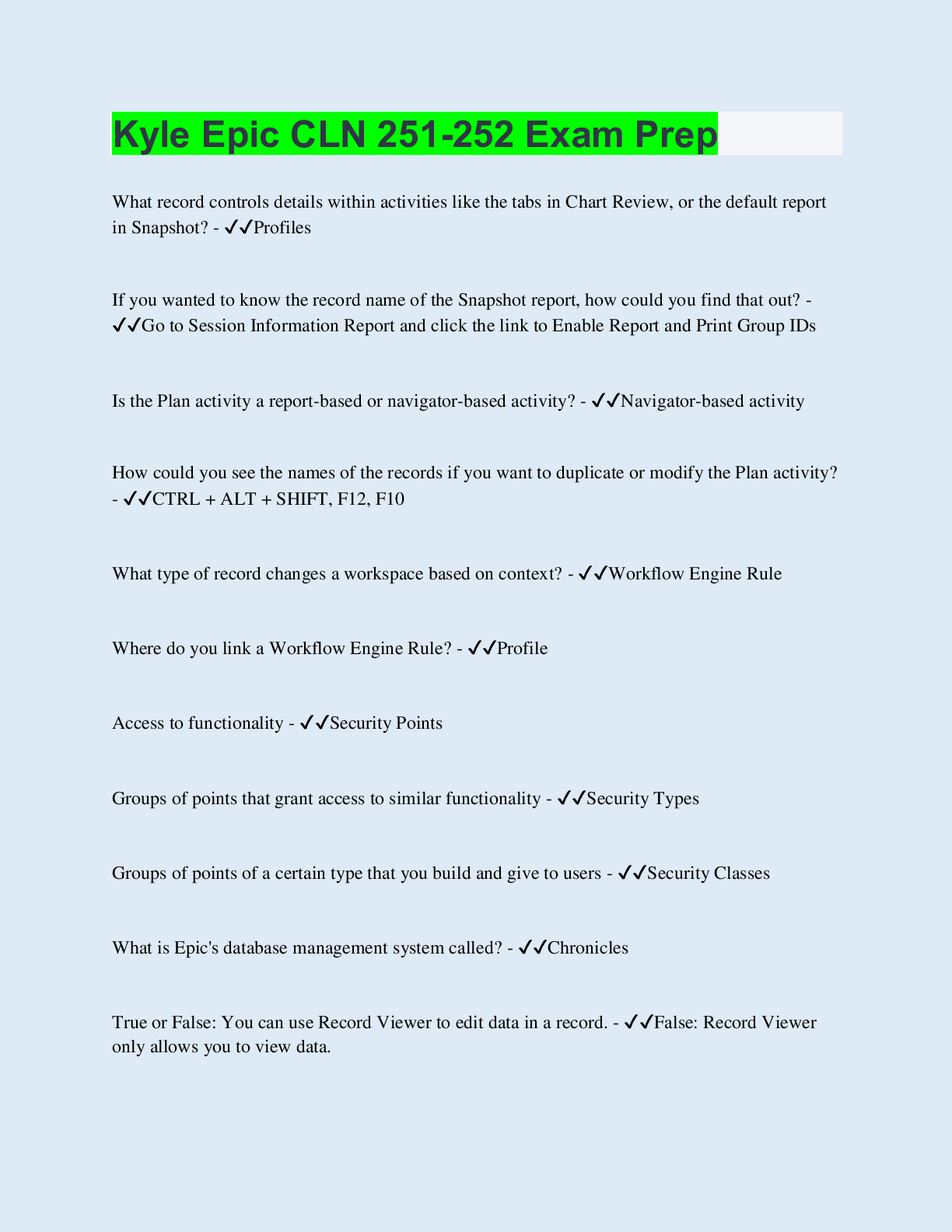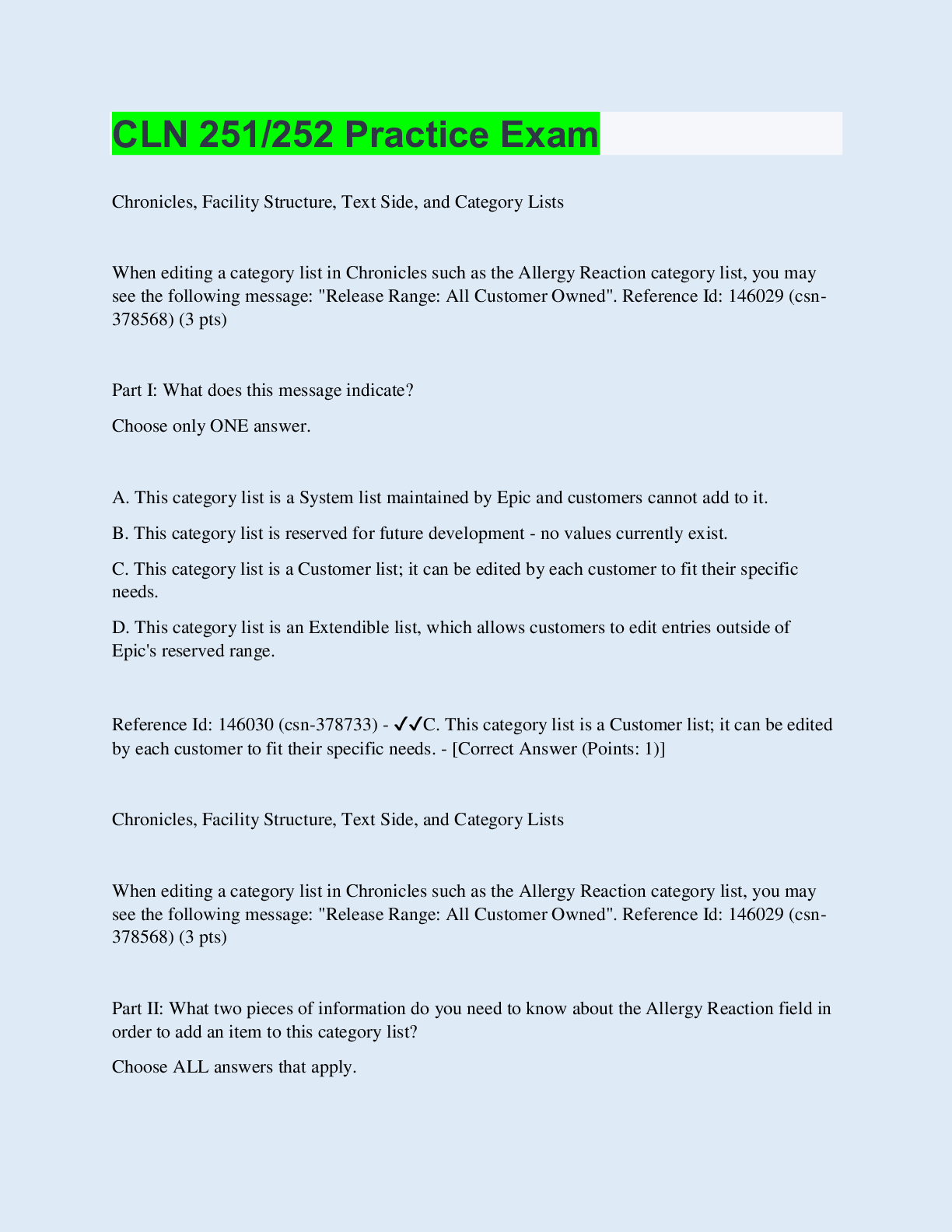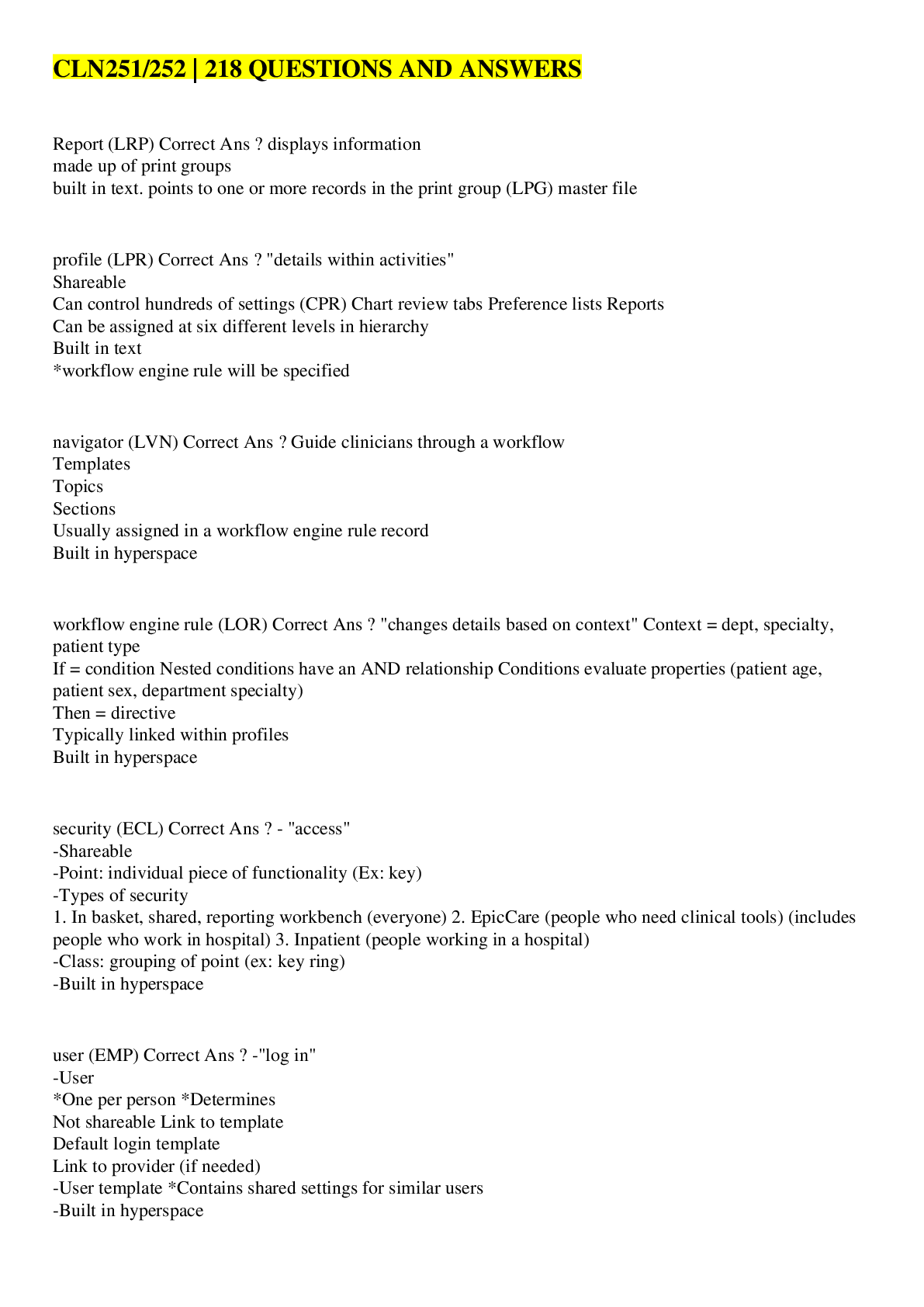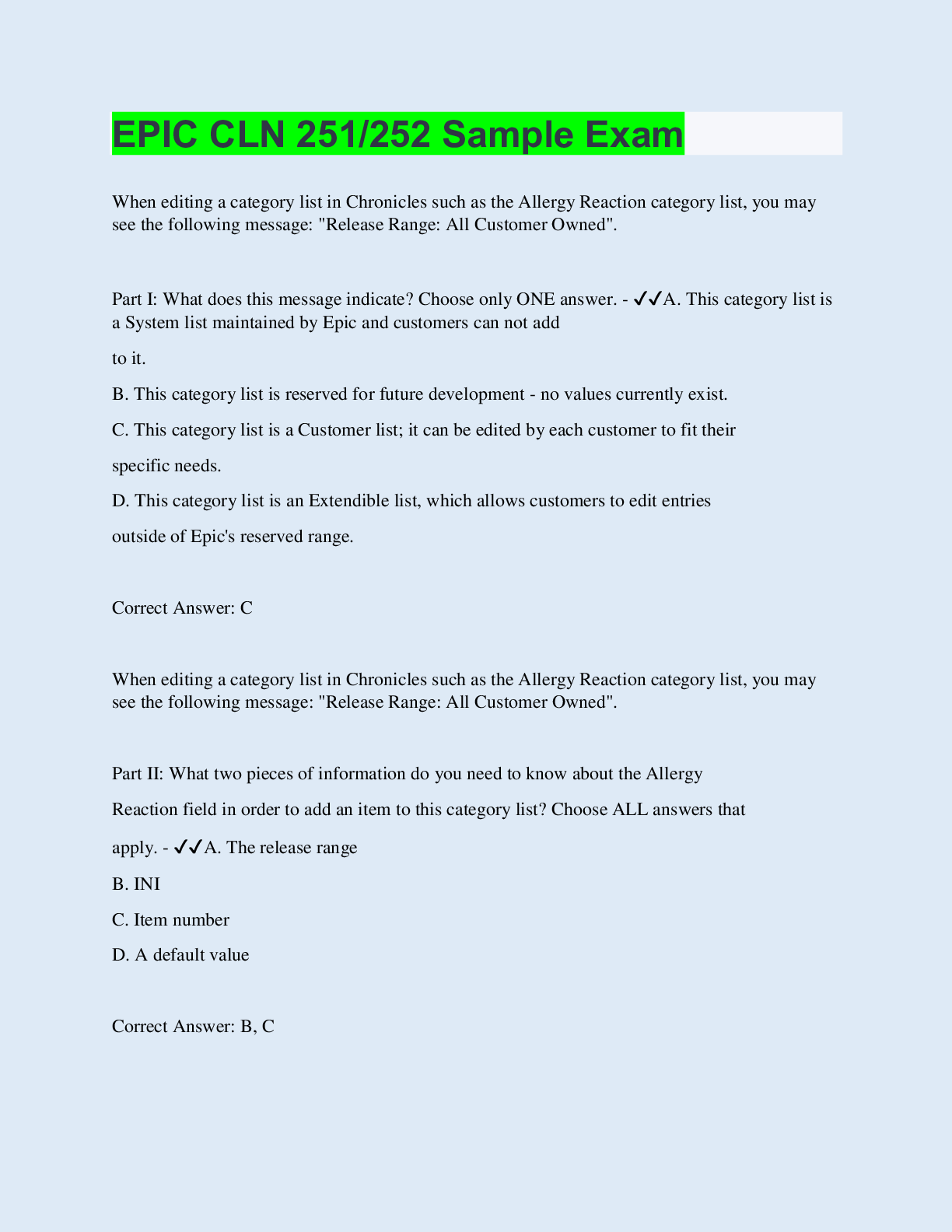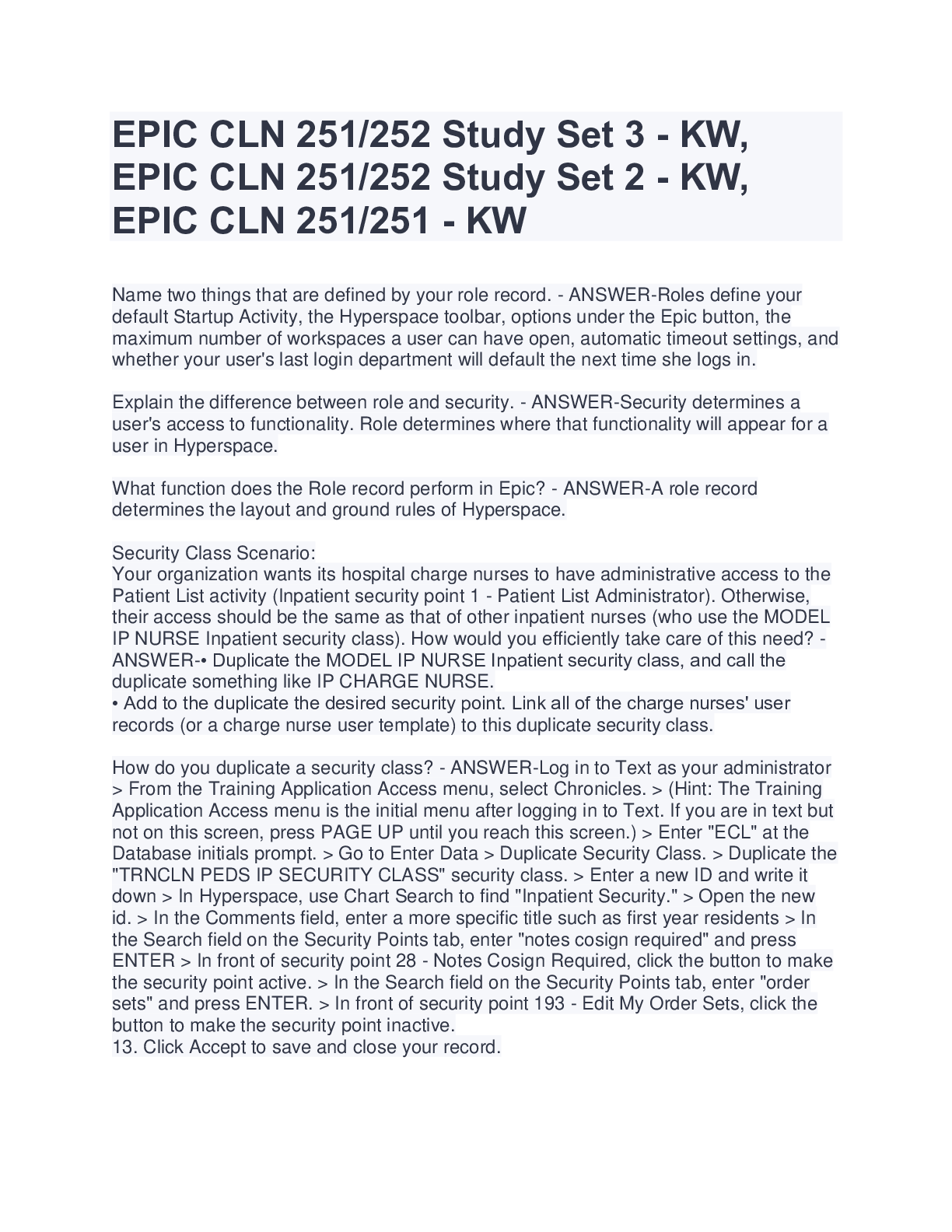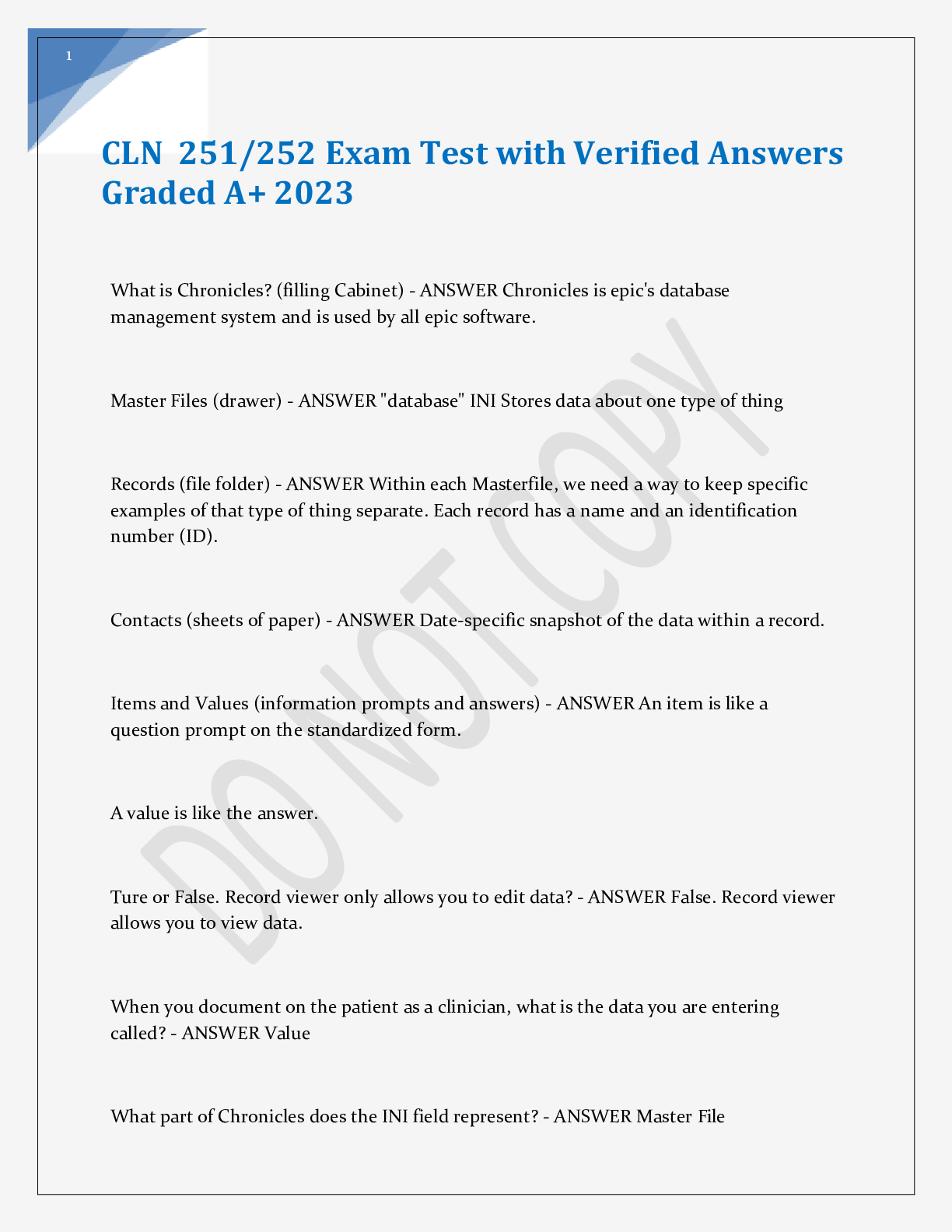Mental Health - Chapter 17 Dementia Exam Answered 100% correct
Document Content and Description Below
Dementia - ANSWER • Insidious onset and difficult to deal with on many levels • Often pt. physically present and capable but mentally not • Difficult for all involvedl to cope with the condit... ions Alzheimer - ANSWER 1. Age related onset 2. Neurological 3. Degenerative 4. Predominantly older than 65 years of age 5. Most common of the dementia's Other Dementia Conditions - ANSWER 1. Creutzfeldt-Jakob Disease 2. HIV/AIDS Related Disease 3. Brain Tumors 4. Brain Trauma 5. Infectious Diseases 6. Toxic Exposure 7. Vitamin B-12 Deficiency What causes dementia in young adults? - ANSWER usually is due to metabolic disorders, substance abuse, immune mediated disease, and infectious disease. Dementia Statistics - ANSWER • By 2050, 11-16 Million estimated to have Alzheimer's Disease, this will cost approximately 148 Billion per year. •34 Million caregivers dealing with Alzheimer's at present. What abilities are lost from Dementia? - ANSWER a. Thinking b. Memory c. Problem-solving d. Calculating e. Judgment • The gradual or acute decline in abilities follows a predictable Progressive Dementia - ANSWER A condition that is not reversible, cognitive declines and ongoing - Examples: Alzheimer's, Pick Disease, Huntington's etc... Static Dementia - ANSWER Not a progressive decline • Example: Traumatic Brain Injury, (recovery and improvement is possible) DSM IV TR on Dementia - ANSWER Indicates that memory impairment must be present with one or more of the following: Aphasia, apraxia, agnosia, and loss of executive functioning Define Memory Impairment - ANSWER The inability to learn new information and or recall past information.• Mild Memory Problem is frustrating : Can be determined to exist based on severe difficulties with learning new material and inability to change routines Aphasia - ANSWER The absence of the ability to communication in speech, writing or through sign language. Apraxia - ANSWER The inability to perform purposive movements although there is no sensory or motor impairment. Agnosia - ANSWER The loss of visual, auditory, or other sensations although the sensory sphere is intact. Executive Function - ANSWER The ability to think abstractly, to plan, to initiate, sequence, have foresight, and have dexterity in task completion. Subtypes of Dementia - ANSWER • Early: (up to age 65) • Late: After age 65 What are the Behavioral Disturbances of Dementia? - ANSWER safety related, agitation, wandering, insomnia, aggression, lethargy and others. supervision is needed because these multiple behaviors put the individual at risk. Dementia: can be co-occurring with Depression or Delirium Delirium - ANSWER Is defined as: An "abrupt change in cognitive responses from one day to another characterized by confusion, delusions, and agitation." Delirium has an acute onset and requires immediate medical care. (Concussion playing football example) Delirium: can be masked by Dementia: Dehydration, UTIs, drugs, are treatable conditions that could cause Delirium. Depression - ANSWER In the early stage of a dementia condition such as Alzheimer's can be co-morbid with depression as the person realizes that they are losing their cognitive skills and abilities. What are the Subtypes of Dementia? - ANSWER Corticol Dementia - Alzheimer's Subcorticol Dementia - Huntington's/Parkinson's Both corticol dementias present with bradyphenia and bradykinesia/slowed thoughts and slowed movement disorders. Frontal temporal Dementia - Picks Disease Vascular Dementia - Cerebral vascular disease Etiology of Dementia - ANSWER Over 50 degenerative diseases contribute to cognitive decline See page 228 2/3 cases are Alzheimer's disease 1% 65-69 years of age, 9% 80-84 years of age 1/3 cases are vascular , multi-infarct and other causes Course: Determined by the cause of Dementia is it static or progressive Tools used to evaluate dementia - ANSWER Important to determine the cause because this impacts the treatment approach and prognosis from a general medical perspective • ACL • MRI • Laboratory Tests • MMSE • MBRC Caregiver Strain Instrument Criteria for Dementia - ANSWER A. Characteristic symptoms: A1 must be present with one or more of A2 Criterion A1 - Memory impariment Criterion A2 - Aphasia, apraxia, agnosia, and loss of executive function B. Social/occupational dysfunction: A1 and A2 must be severe C. There must be a decline from previous function D. The cognitive deficits are not exclusively in the course of a delirium E. The cognitive disturbances are not due to another Axis I disorder (major depression, schizophrenia) What are the genetic factors? - ANSWER • Genetic link appears to exist in some types of Dementia • Alzheimer's risk: Heightened by age and first degree relative with the disease • Families of Volga0German heritage gene mutation • Creutzfeldt-Jakob-Familial link • Huntington is inherited Cultural Impacts on Dementia - ANSWER Prevalence varies from culture to culture. Due to nutrition, education, lifespan, substance abuse, infection, cerebrovascular disease, different treatment approaches in different places are used or not used. Medications for Dementia - ANSWER Aricept Exelon patch etc. Vitamin E- Inconclusive results Antipsychotic drugs- for delusions, hallucinations etc... What do we do as OTs to assist an individual with Dementia or their family? - ANSWER Administer Assessments on cognitive levels. Minimize decline and adapt activity patterns that were established earlier. Optimize environmental supports to facilitate performance and teach caregivers on adaption strategies to achieve desired goals [Show More]
Last updated: 1 year ago
Preview 1 out of 4 pages
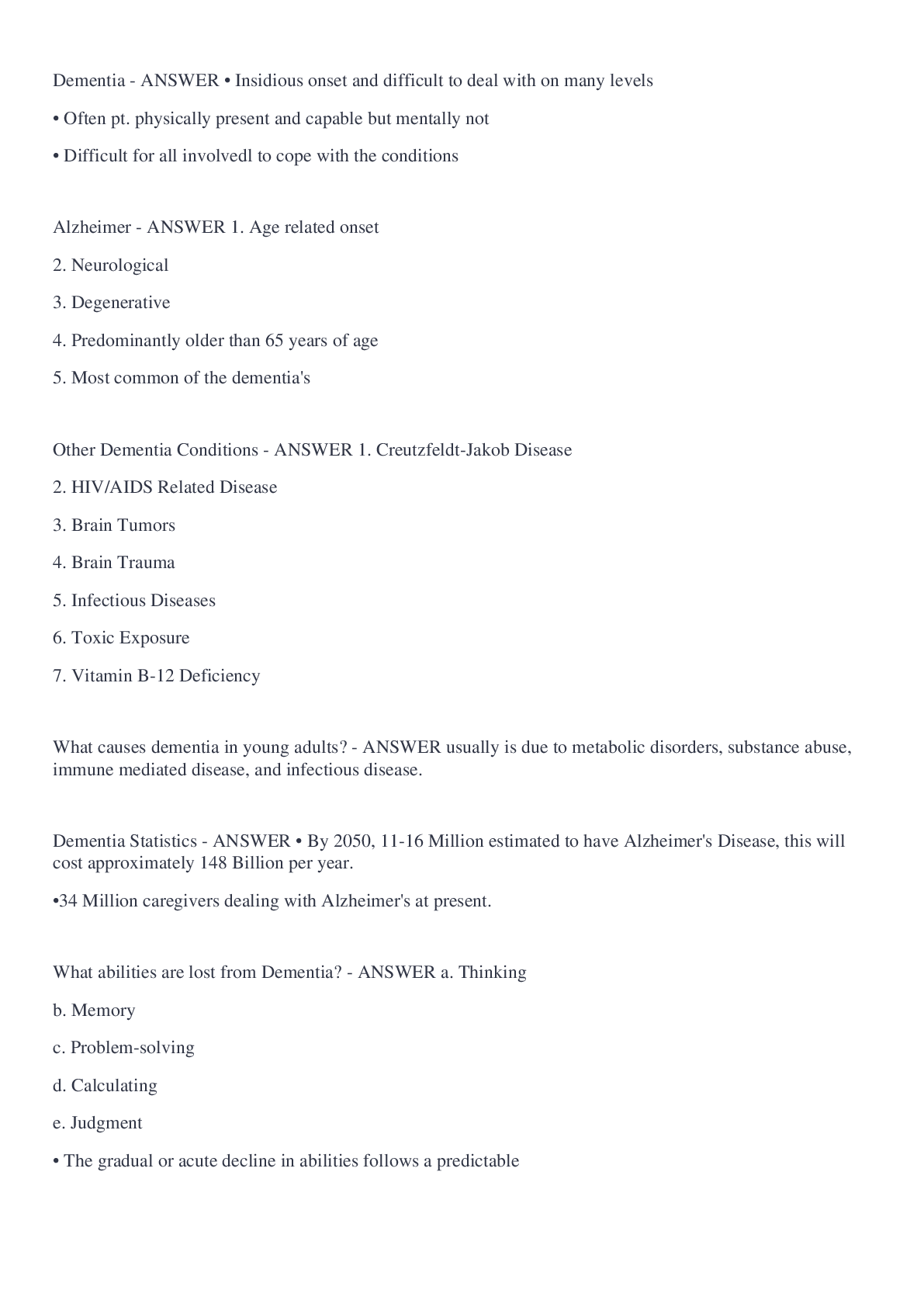
Reviews( 0 )
Document information
Connected school, study & course
About the document
Uploaded On
Jul 28, 2022
Number of pages
4
Written in
Additional information
This document has been written for:
Uploaded
Jul 28, 2022
Downloads
0
Views
41


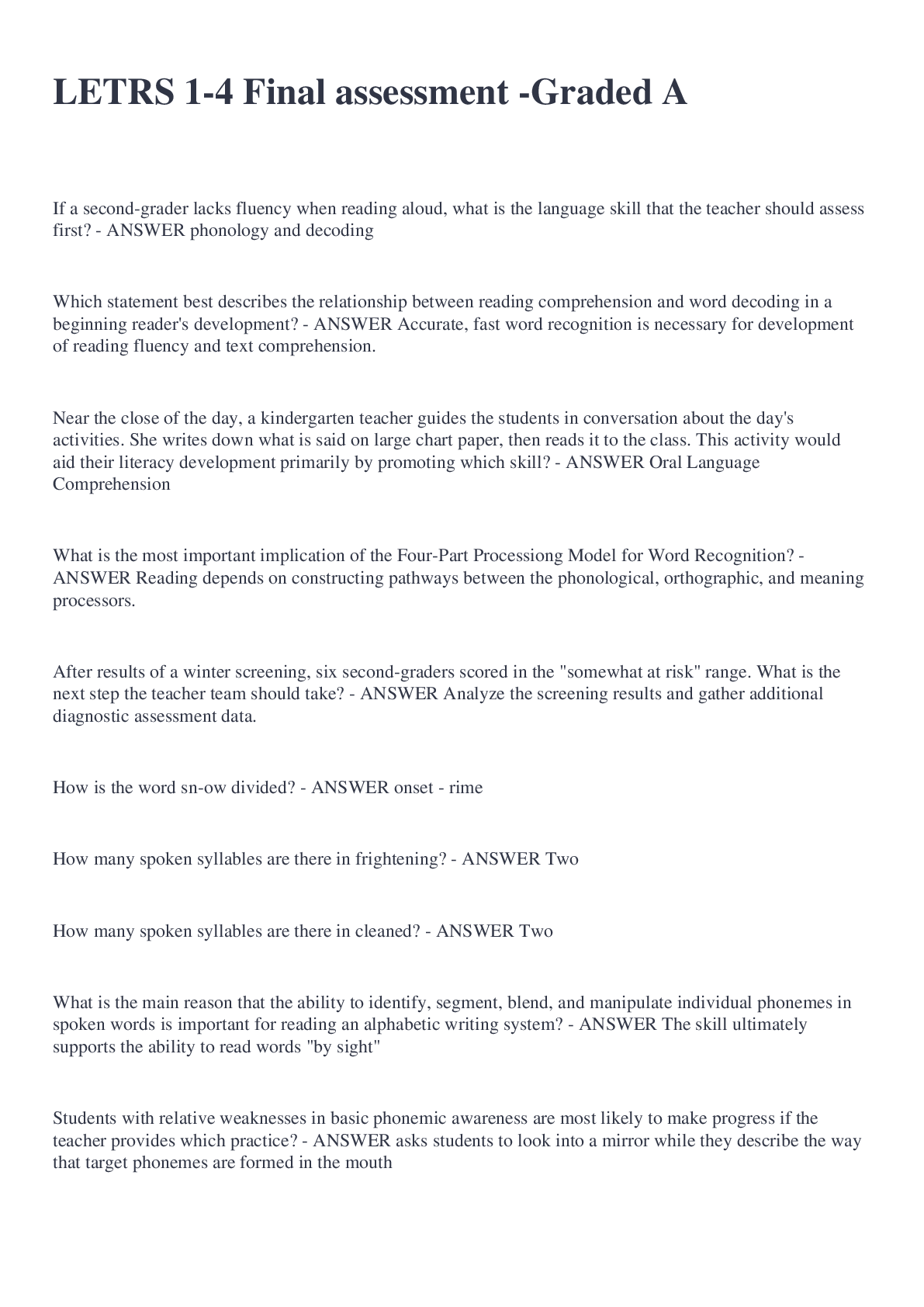
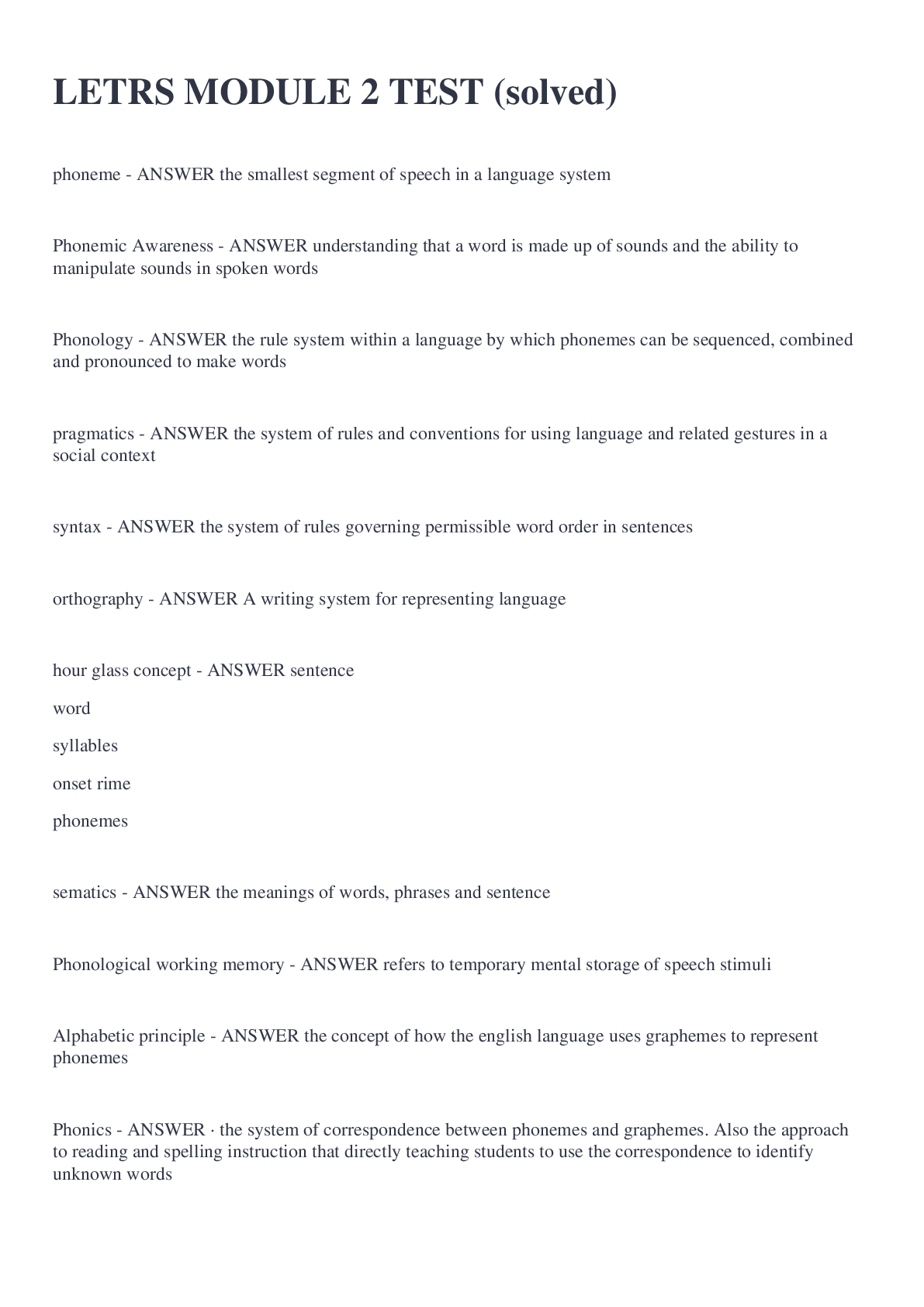

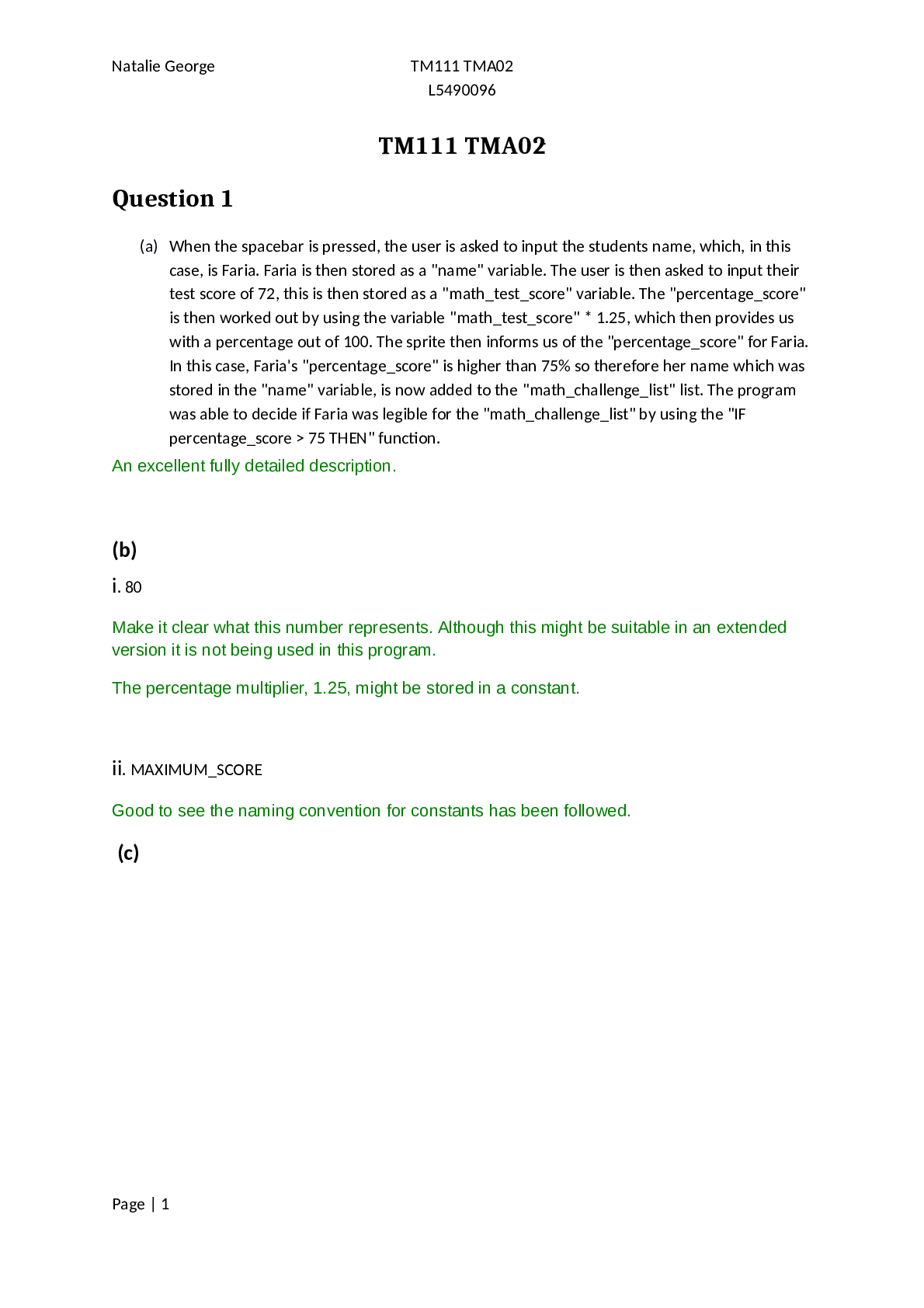
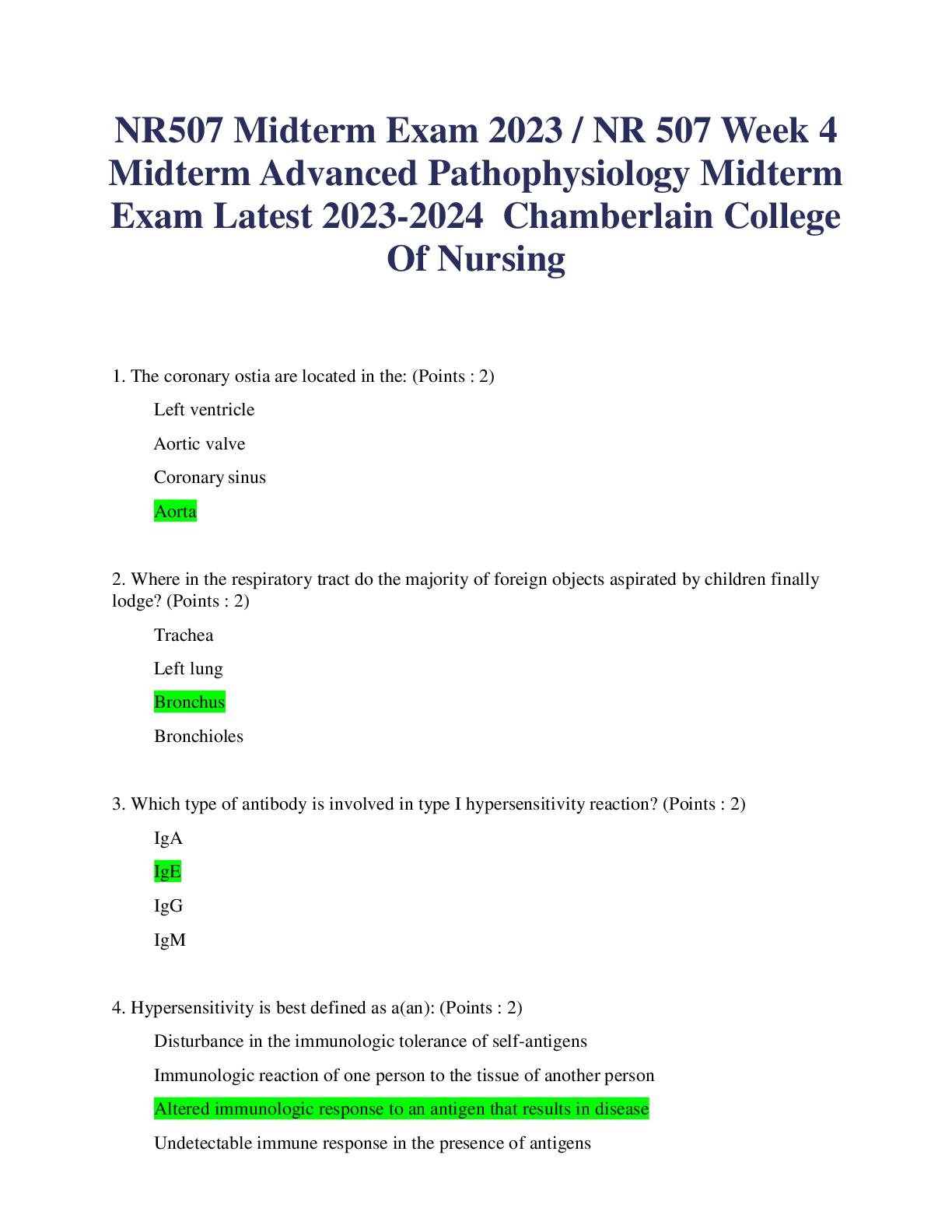
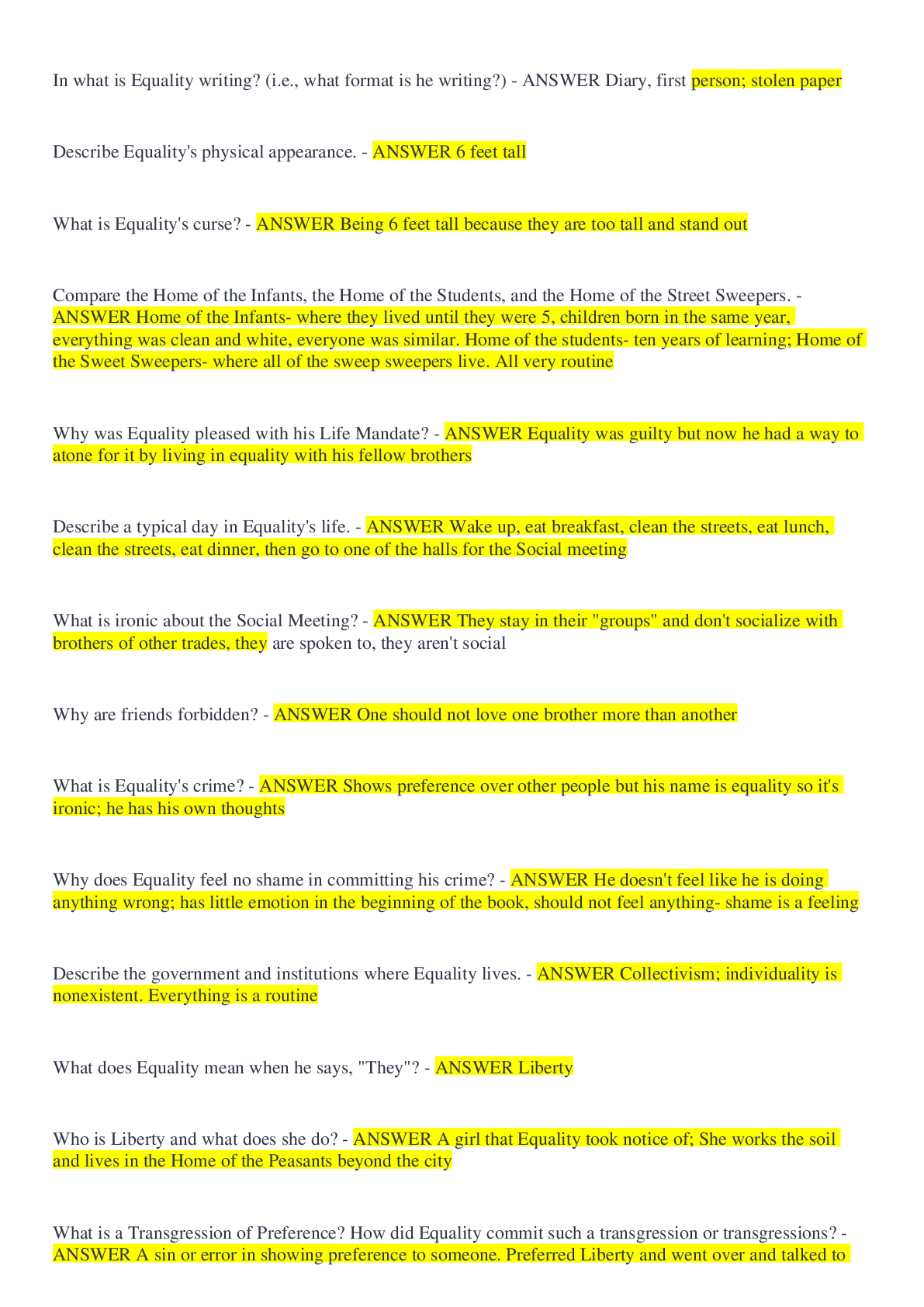
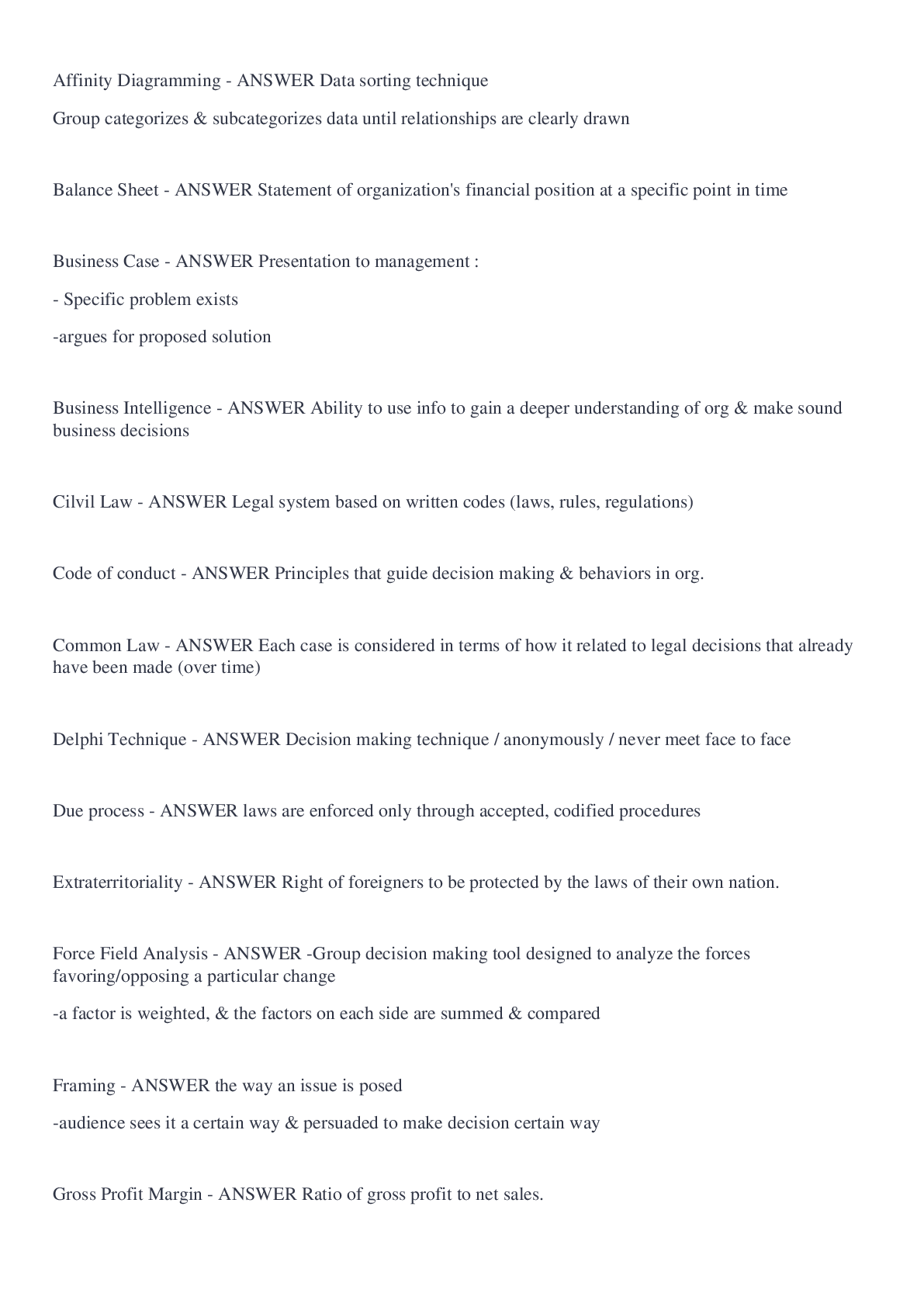

.png)
